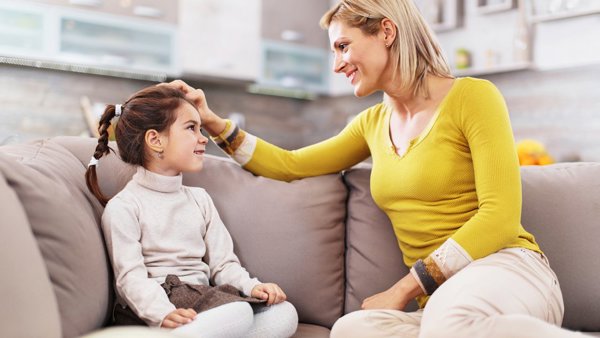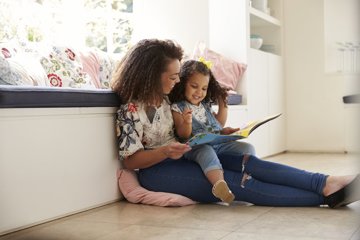How Do I Encourage My Child to Start Talking?

When we think about a child learning to walk, adults provide various instruction – demonstrating, guiding and encouraging.
With this instruction, children walk when they’re developmentally ready. For some children, that’s at 9 months; for others it’s 15 months. But, at 13, you can’t tell the difference between the early and late walker. They are both probably pretty good walkers. The same can be said for learning to talk.
So, what can you do to help your child start to talk?
1. Get chatty
When your child starts to coo and say dada, talk back and engage in activities your child is interested in. Your words make up the language “input” your child needs to learn words and ideas. The more input you give, the more opportunities your child has to express themselves and understand what others are saying.
2. Label it
Name the objects or actions you see. When you narrate to your child, he hears your labels. He’ll learn about how words are used, and is more likely to use the same words when he begins to communicate.
3. Sing out loud
You can help your child develop strong language skills by incorporating music into everyday activities. Music helps your child develop an awareness of sounds that help with phonological awareness (awareness of sounds found in speech). Singing and listening to songs gives your child an opportunity to practice using and listening to words.
4. Read interactively
Opportunities to help your child develop their language skills with books are greatest when your child is engaged. Encourage participation by asking open-ended questions. Give them feedback. Through these interactions, you’re giving your child a lesson in listening and speaking skills, enhancing their language development.
5. Use props
For children, toys are tools often used for communication and self-expression. You can supply your child with “props” to help support their language development. They should be objects that stimulate conversations, such as old phones, cell phones, puppets, dolls, wordless books, familiar books, pictures, play dough, and felt board cutouts.
6. Be a commentator
Your child’s earliest forms of communication is their body language. Children frequently use gestures from 8–12 months in place of words to get adults’ attention. Simple gestures and commenting on actions or events is a way to give your child examples of how language is used. Talk about what you’re doing, seeing, or thinking about with your child. This also helps your child learn and understand which words go with which actions.
Introduce some of the above tips and be patient. Your child will begin talking in the blink of an eye!
Alice Oliver-Powell
Education Specialist
The Sunshine House
Resource: More Than Baby Talk: 10 Ways to Support Language and Communication Skills of Infants and Toddlers. The University of North Carolina at Chapel Hill, Frank Porter Graham Child Development Center. 2017


